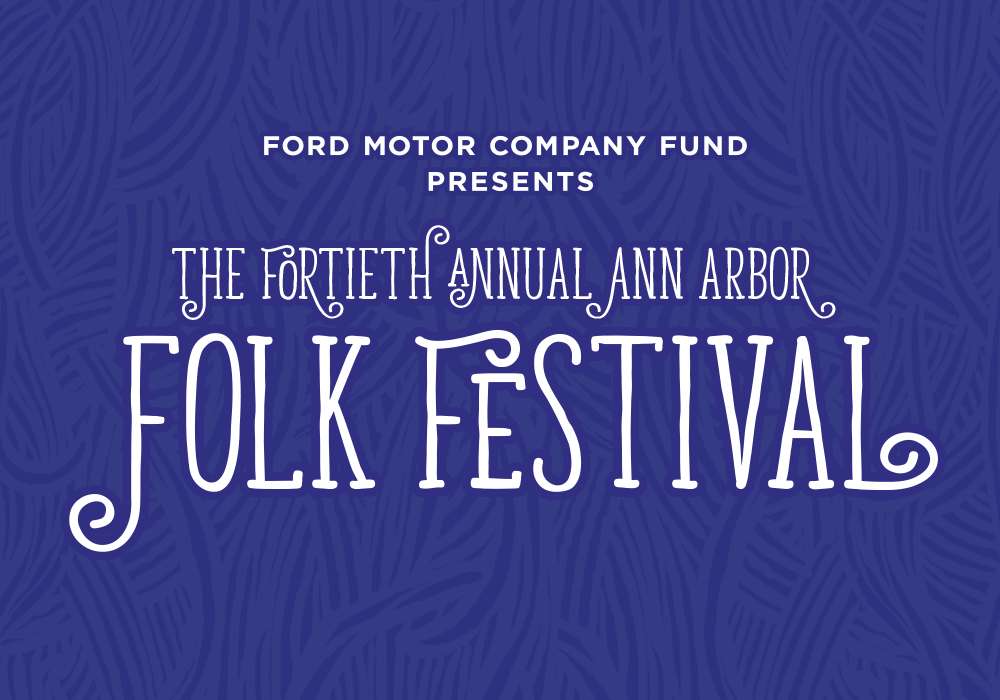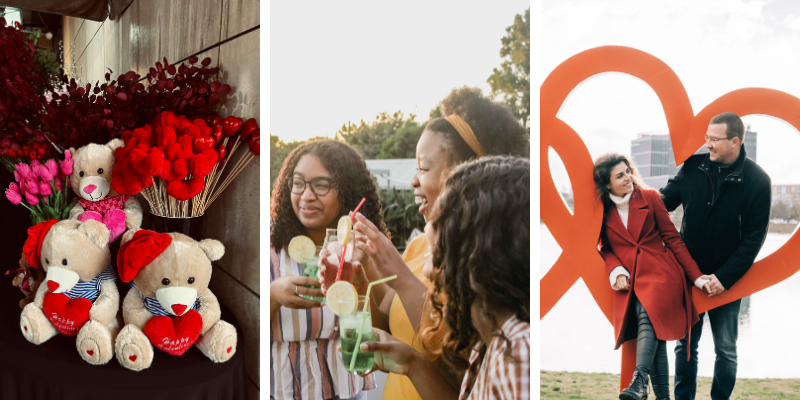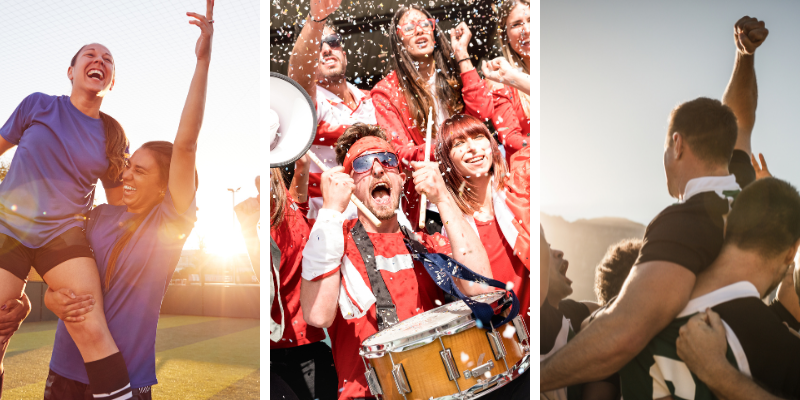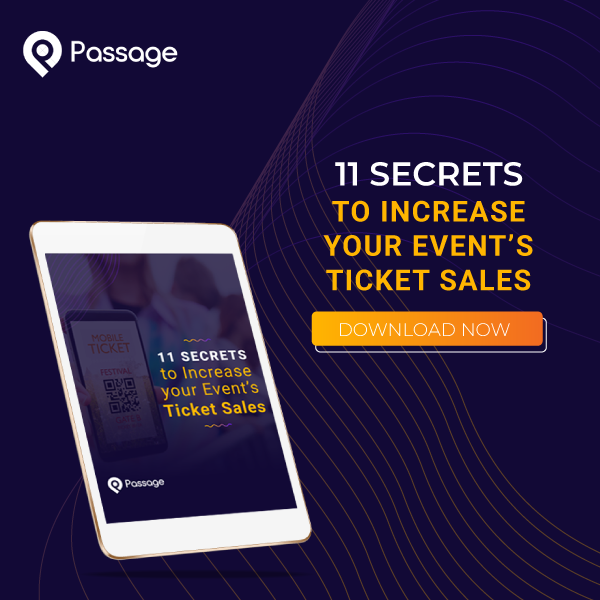There’s an “Ah-ha!” feeling that seems to explode in your mind while witnessing what you know to be the next big band. It’s a heart-pounding, toe-tapping, snap-your-fingers-silently-to-yourself feeling that comes only from experiencing live music before it becomes popular. These feelings might not come around very often for most concert goers who only follow star headliners. But, for music-lovers that frequent The Ark, this feeling is constant. A non-profit organization since it was founded in 1965, The Ark is dedicated to providing live music over 300 nights each year.
Every year, folk fans gather from around the globe to enjoy this non-profit’s mid-winter Folk Festival that typically sells out Hill Auditorium’s 3,500 seats. This year’s Fortieth Annual Ann Arbor Folk Festival commences on Friday, January 27th and runs through Saturday the 28th. It promises to feature the full spectrum of folk, the best up and coming artists, and a few of everyone’s favorite headliners.
I had the pleasure of sitting down with Barb Chaffer Authier, Marketing Director of The Ark. Barb has been marketing and coordinating this event for over a decade; and while she’s had her fair share of fun and success, she shares the struggles and insecurities that anyone in the event and hospitality industry can appreciate. Enjoy this interview with Barb!
How did the Ann Arbor Folk Festival begin?
The Folk Festival was born in 1977 out of a need for fundraising. The Ark’s program director at the time collaborated with a few core artists to pull a big event together in order to keep us in business. The festival turned out to be a greater success than anyone expected, and of course, ended up making enough money to keep our doors open! With the exception of one year, the Folk Festival has been an annual event that The Ark is proud to host. It’s one of our biggest fundraisers and one of our favorite events of the year.What’s been the greatest improvement in this event that you’ve witnessed?
The biggest positive change that’s happened over the years came in 2003, when we transitioned from a one-night event to a two-night event. Hill Auditorium was under renovation, and we were forced to move the festival to the Michigan Theater. This venue only seats a little more than half of what Hill can hold. To compensate for the lack of space, we needed two nights to accommodate the number of people we expected to show up. What we first viewed as an inconvenience, would turn out to be one of the best decisions we’d made. Selling tickets with this new “series” model was a hit. We kept the festival as a two-night event when we moved back to Hill the next year and haven’t looked back since. The event continued to grow, and within a few years, we were consistently selling out both nights.What are some of the greatest challenges you’ve had to overcome in planning the Folk Festival?
One of the challenges we’ve faced ever since moving to a two-day format is breaking down the lineup to separate artists Friday from Saturday. In the past, we’ve scheduled the lineup so that Friday was geared toward a younger audience. This usually meant presenting artists that pushed the boundaries of what was was thought of as typical folk. Saturday was the night that was supposed to bring people back to the roots of more traditional folk. In recent years, however, the music scene has evolved in that the line between “young folk” and more traditional folk is too blurred to distinguish. We’re seeing a lot of artists that can present both roots-based music that appeals to the older generation, and elements that engage a younger audience.
We strive to bring in music that matters, that has a message, and that fires people up.
For this upcoming festival and for folk fests to come, we're not defining the two nights as rigidly. When the Indigo Girls (Amy Ray and Emily Sailers) emerged in the 80s, they were so different from anything on the radio. They reintroduced folk protest and singer-songwriter music into mainstream. When you listen to songs from artists like Amy and Emily (our Saturday night headliners), or from our Friday night musical collective, Nahko and Medicine for the People, you start to think, 'Oh my god, this is important music!' We strive to bring in music that matters, that has a message, and that fires people up. We seek out those artists that take the time to create more than just a catchy tune.
What are your best strategies for marketing the Folk Festival?
Our marketing strategy has changed tremendously over the last few years. Of course, we utilize social media, print ads, radio ads, and everything else you’d think of when it comes to spreading the word about a music festival. We encourage our featured artists to reach out to their fans and advertise that they’ll be playing at the festival.The one thing that we are really trying to get people to understand, is that it doesn’t matter who’s in the lineup; if you attend the folk fest, you’re going to learn something new and discover something great. We’re trying to show that this festival is just a sample of what we offer, and if you like it, come back to The Ark to hear more great music! As much as the goal is fundraising, we want to build an audience for new artists and give them a platform to showcase their talent. In building this network of music-lovers, we hope that more people will come back to experience new talent at The Ark.
While we’ve had some success is this type of marketing, it’s also proven to be incredibly challenging. There are a lot of factors that have stood in our way lately. Sometimes, there is a big-name artist playing in Detroit the same night. This year, it’s been especially tough to generate press big enough to break through the noise of the recent election. Needless to say, there is always something that makes marketing challenges, but we’ve been able to overcome most challenges by being intentional in building networks and targeting specific audiences.
How does The Ark use collaboration teamwork to make this event a success?
We’re a small staff (about ten people), and most of our staff has been with The Ark for nearly a decade. Because we’ve all been doing this together for so long, we are always in danger of letting things get stale. Our team works hard to find time to get fresh ideas and new perspectives from people outside of our staff. We never want to get to the point where we are content with saying, “that’s how we’ve always done it.”
The businesses that participate in this event understand the importance of the arts, and how music has the power to inspire people.
We reach out to community members and form partnerships and sponsorships with a lot of great companies. We try to strengthen our relationships with our corporate sponsors and media partners each year. Most of them, like our design sponsor Q ltd., our hospitality sponsor Zingerman’s, and so many of our radio and media partners, have sponsored the Folk Festival for years. They feel a sense of pride, ownership, and responsibility toward the festival. Most of our sponsors and partners feel like they are an integral part of the event; it’s not just The Ark’s Folk Festival, it’s theirs too. Their people are talking about the event and generating buzz, not because they are obligated to, but because they see how important this music is to the community.
They’re not just doing it because they have to or because it’s “good music”; they’re doing it because they see the broader impact on the community in what The Ark does year ‘round. The businesses that participate In this event understand the Importance of the arts, and how music has the power to Inspire people.
We’re also seriously grateful to our volunteers who usher, handle tickets, work concessions, sell merchandise, and do so much more behind the scenes. Without volunteers, the folk fest wouldn’t be the success that it is today, and The Ark would not be able to provide music for over 300 nights out of the year. We have over 400 people that volunteer their time and talent to keep our music alive.
What do you think attributes most to the Folk Festival’s success?
It never gets stale. The festival is not just about showcasing the big-name artists, it’s about supporting up-and-coming artists. My favorite thing about the Folk Festival is that I always walk out feeling inspired by new artists that I’ve never heard of before this event. For a lot of people, that is the power of the Folk Festival; it’s an opportunity to discover new music and hear bands that five years from now will be huge. The Avett Brothers played at The Ark twice and didn’t sell out. Last year, they performed at Hill Auditorium and easily sold out.
There’s something special about that moment when you realize ‘I saw them when no one else knew who they were, and now they’re huge!’ I look at other festival lineups full of bands I know, and those performers are on that bill because you’ve already heard them on the radio. Our festival is filled with music that deserves to be heard and deserves to have an audience . This is the music we want people to discover and love.
What advice would you give to someone planning their first music festival?
Ask questions early. If you’re producing and planning a music festival, you’ll want to have a solid sense of your brand. What kind of music will you feature? Roots? Electronic? Rap? Pop? What types of bands are you getting? Are they all local? What is your philosophy? Presenting artists that play free everywhere, and expecting people to pay big bucks for your ticketed event probably isn’t going to produce the results you want. Is your event a one-off, or is it going to be an annual festival that runs for years into the future? Asking and answering these questions up-front will save so much time and headache in the long run.
Define your audience and then, build it. Know that unless your budget is so huge that you can afford the slam-dunk headliner that will draw big crowds, you will have to build an audience yourself. Get to know the types of people you’ll reach out to; find out where they hang out, how they’re getting information, and go there.
When it comes to partnerships, go for quality over quantity. You’re going to have to do a lot of work with sponsorship and fundraising. Take the time to seek out concrete partnerships before you get too far into the intricate details of your event. If all of your music is a certain style, find the radio station that’s playing that music and strike up a deal with them to promote it. Figure out which media sources are willing to do community service and aren’t going to expect a big cash outlay. Most importantly, do this on the ground level. There is nothing more disheartening than planning a festival, booking it, and then… radio silence… no one’s talking about it.
Do you have any special words of wisdom for people attending this year’s Folk Festival?
If you bought a ticket to Friday night’s show just to see Kacey Musgraves, consider coming at beginning and staying for the whole thing. You might miss your next favorite artist if you decide to get there just in time to see the one artist you’ve had your heart set on seeing. Everyone on the bill is worth seeing, so take the opportunity to be inspired by new music.Conclusion
If you’ve never attended the Folk Festival, you can purchase tickets here. All of the up and coming artists playing at this year’s festival will be back for another show at The Ark sometime this year. Check out the upcoming shows and events calendar to see more of what The Ark has to offer. As for my fellow Folk Fest-goers, grab a seat, enjoy exceptional live music, and get ready to find your folk !









